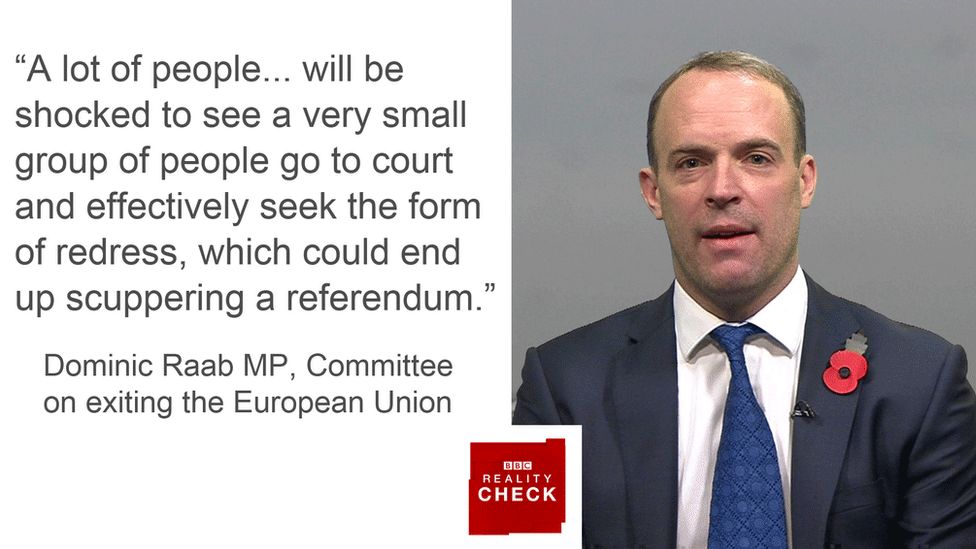Reality Check: Could High Court ruling on Article 50 scupper Brexit?
- Published

The claim: The High Court ruling that the government cannot use prerogative powers to trigger Article 50 could scupper Brexit.
Reality check verdict: The process of obtaining parliamentary approval may delay or complicate the process but it is hard to imagine that Parliament could ignore the outcome of the referendum.
The High Court has ruled, external that the government does not have the power to trigger Article 50 - to start formal exit negotiations with the EU - without the approval of Parliament.
The ruling was made by two of the UK's most senior judges, the Lord Chief Justice and the Master of the Rolls and another experienced colleague, Lord Justice Sales. The government is appealing to the Supreme Court, which will hear the case in early December.
Dominic Raab, a Conservative MP who sits on the Committee on exiting the European Union, told BBC News: "A lot of people... will be shocked to see a very small group of people go to court and effectively seek the form of redress, which could end up scuppering a referendum."
He later went on to say that he did not think the ruling would stop Brexit happening.
The government currently plans to trigger Article 50 in March 2017 and this timetable may be threatened.
If the Supreme Court rules in late December or January that the approval of Parliament is needed then it would be more difficult for that to happen in time for March.
But prominent Leave campaigner Iain Duncan Smith told BBC News: "I don't think this affects the timetable at all."
However, he did warn that it opened the possibility of Parliament voting against Article 50 being triggered, causing a constitutional crisis.
Legal challenges
The High Court did not specify what form the approval of Parliament has to take but there is broad consensus that it would have to be an Act of Parliament.
Passing that legislation could be complicated and time-consuming because it would require there to be debates in the House of Commons and the House of Lords, allowing there to be amendments tabled that could, for example, limit the government's freedom in negotiations about the UK's future relationship with the EU.
It is possible that this could delay the triggering of Article 50 beyond March, but could it scupper Brexit altogether?
If all the MPs voted in the way that they campaigned in the referendum then there would be a Commons majority for staying in the EU, but it is enormously unlikely that they would decide to ignore the outcome of the referendum.
Labour's shadow secretary for exiting the European Union, Keir Starmer, was very clear in telling BBC News: "We accept and respect the outcome of the referendum."
But he added that the court ruling should force the government to set out the outline principles on which it would be negotiating.
- Published3 November 2016
- Published5 July 2016